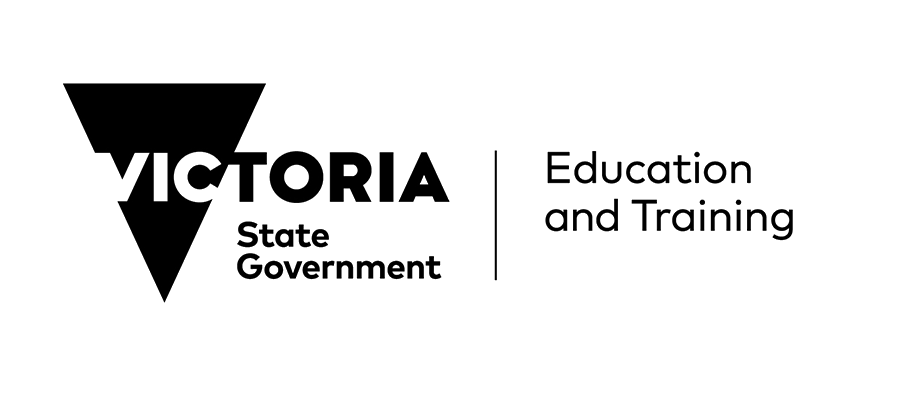About parliament education
The Parliament of Victoria is committed to supporting civic and citizenship education, including the role of parliament, by providing teachers and students with access to quality resources and programs.
Our work is made possible through collaborations and partnerships across the civics and education sectors. We aim to ensure that the programs and resources we offer are engaging and suit the diverse needs of schools across Victoria.
“ Give the pupils something to do, not something to learn, and the doing is of such a nature as to demand thinking; learning naturally results ”
Dewey, 1916
Resource and program structure
Parliament of Victoria education resources and programs are developed as part of a framework that includes three categories, each addressing different student needs and opportunities: Explain, engage and explore. Each category is underpinned by a range of professional development opportunities for teachers.
Explain
Foundation resources and programs that primarily convey information, key concepts and processes, or are teacher guides that are complimentary to the larger thematic resources found in ‘Explore’.
Engage
Information and activities that add value to the in-person programs offered by Parliament of Victoria, including school tours for example. These may also include workshops or presentations that incorporate hands-on experiences.
Explore
Thematic and narrative-base resources and programs, designed for an in-depth exploration of concepts and ideas. These may be a collection of assets that are complimentary, or may be self-contained. They are designed to be used flexibly and offer engagement opportunities through a range of stimulus material, including stories, case-studies, images and videos.
Pedagogical approach
The pedagogical approach for parliament’s education resources and programs draws on best practices of constructivist education, such as inquiry approaches, and person-centered approaches. These approaches should provide meaningful and inclusive opportunities to support the civic voice and agency of students, teachers, and the wider community, including opportunities for flexible implementation, differentiation, co-design and partnership. In doing so, the framework acknowledges, in terms of school-based education, teachers as professionals who know their students and are therefore able to adapt the resources to best suit their contexts and students’ needs.
The pedagogical strategies therefore:
- Acknowledge that teachers and students have a wealth of rich experiences and prior knowledge
- Encourage and facilitate dialogue
- Include opportunities for hands-on and real-world experiences
- Provide opportunities to connect content to real-world, contemporary and relevant examples and experiences
- Include a range of entry points to resources, that support teachers to flexibility use the content and activities to best cater to their students’ points of need
- Encourage and facilitate critical, creative and reflective thinking
- Provide opportunities to learn discipline-specific literacies and provide appropriate scaffolding to do so.
Philosophy and aims
It is widely acknowledged that Civics and Citizenship is an important part of students’ education (Alice Springs (Mparntwe) Education Declaration, Education Council, 2019).
This education framework draws on theoretical and pedagogical principles such as Funds of Knowledge (Moll, Amanti, Neff & Gonzalez, 1992) and constructivism (Dewey, 1929; Freire, 1968; Piaget, 1954; Vygotsky, 1978). Both these principles recognise the rich and diverse experiences and prior knowledge of learners as the foundation upon which new understanding and knowledge may be acquired. In this way, the resources and programs developed through this framework aim to acknowledge the ways in which everyone’s individual experiences make their learning unique to them.
Most importantly, these principles provide opportunities for authentic learning by connecting peoples’ experiences and understandings of the world with both the work of Parliament and the wider democratic process. In doing so, this framework aims to be not only respectful to the communities’ – young people, teachers and wider community members – backgrounds, relationships, and social and cultural contexts, it also acknowledges the democratic potential of education (Dewey, 1929; Freire, 1968).
References
Dewey, J. (1903). Democracy in education. The elementary school teacher, 4(4), 193-204. https://www.jstor.org/stable/992653
Dewey, J. (1916). Democracy and education. Macmillan.
Education Council (2019). The Alice Springs (Mparntwe) Education Declaration.
Freire, P. (1968). Pedagogy of the Oppressed (30th Anniversary Edition). Bloomsbury Academic.
Moll, L., Amanti, C., Neff, D., & Gonzalez, N. (1992). Funds of knowledge for teaching: Using a qualitative approach to connect homes and classrooms. Theory into Practice, 31(2), 132-141.
Moreland, N. & Horsburgh, R. (1992). Auditing: a tool for institutional development. The Vocational Aspect of Education, 44(1), 29-42.

The Victorian Parliament's suite of education resources and our outreach programs to schools are supported by the Department of Education and Training through their Strategic Partnerships program.
Parliament's Education Advisory Panel consists of primary, secondary and tertiary educators, as well as student representatives, and advise on the Parliament of Victoria’s education experiences and resources.
Meeting once a term, the panellists provide insights into contemporary classroom practices, school priorities and the education sector more broadly. They also provide advice on opportunities for broadening and diversifying the reach of parliament’s education programs.
More information
For more information about the advisory panel, including how to register an interest in becoming a panel member, email education@parliament.vic.gov.au or phone 86222898.